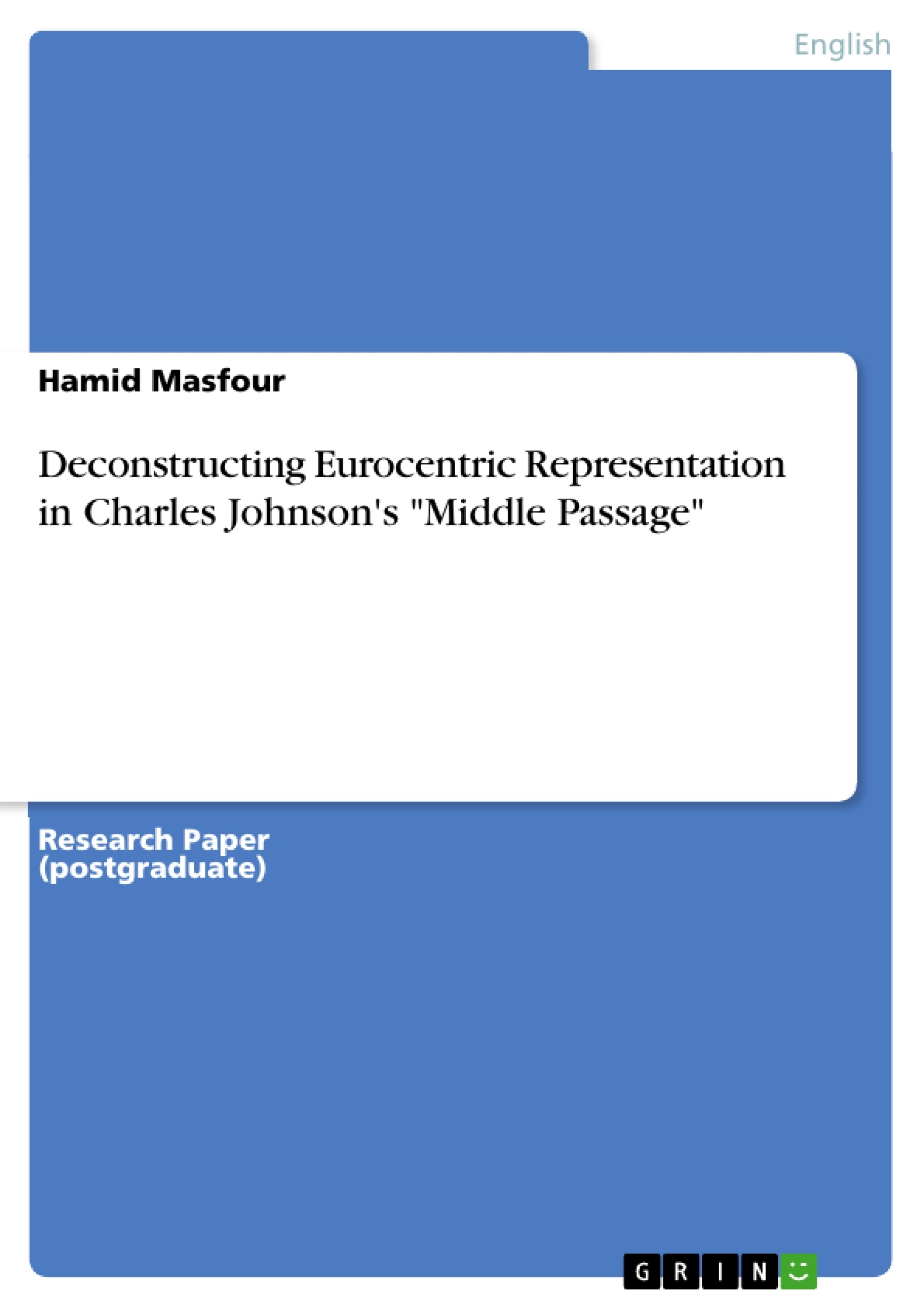In many ways, Charles Johnson’s novel "The Middle Passage" (1990) can be considered a subtle rewriting of slavery and a meticulous rethinking of the Eurocentric representations of blacks. Through the journey of an ex-slave, Calhoun Ruthford, stowing away on a ship to escape a forced marriage, Charles Johnson weaves a postmodern slave narrative told from the perspective of a black protagonist to question the tropes of white superiority.
In every twist and turn of the plot, Calhoun’s reflective Journey underlies different sites of deconstruction against white paradigms, artistically masterminded to unveil significant moments of self-contradictory essentialist Eurocentrism. With a counter-discourse advocating inter-subjectivity, human interconnectedness, subjective mobility and third spaces, the middle passage, as this essay argues, enacts different deconstructive strategies involving anti-Eurocentric cultural politics with rebellious Afro-American poetics
Inhaltsverzeichnis (Table of Contents)
- Abstract
- Introduction
- 1-Questioning white utilitarianism:
- 2-Interrogating the Eurocentric perception of the other.
- 3- The stereotype of black inferiority and Eurocentric power desire....
- Conclusion......
- Cited works:
Zielsetzung und Themenschwerpunkte (Objectives and Key Themes)
This essay explores Charles Johnson's The Middle Passage (1990) and its subtle rewriting of slavery, challenging Eurocentric representations of Black people. Through the journey of ex-slave Calhoun Ruthford, the novel deconstructs essentialist Eurocentric discourse and proposes a counter-discourse advocating inter-subjectivity, interconnectedness, and hybridity.
- Deconstructing Eurocentric representation in The Middle Passage
- Questioning white utilitarianism and its impact on freedom
- Interrogating the Eurocentric perception of the "other"
- Exploring the potential of inter-subjectivity and interconnectedness
- Challenging the stereotype of Black inferiority and Eurocentric power desire
Zusammenfassung der Kapitel (Chapter Summaries)
The introduction discusses how The Middle Passage rewrites the slave narrative tradition, using a Black protagonist to challenge white supremacy. It highlights the novel's exploration of deconstructive strategies and its promotion of a counter-discourse advocating inter-subjectivity and hybridity.
The first chapter focuses on the theme of white utilitarianism, analyzing how Calhoun's journey deconstructs the universality of Eurocentric representation. The chapter examines Calhoun's pursuit of freedom and his struggle against the limitations of a paradigm that prioritizes material possession and reinforces the logic of consumer capitalism.
The second chapter delves into the Eurocentric perception of the "other". Calhoun's encounters with the Almussiri tribe aboard the ship highlight the potential for ethical relations based on interconnectedness and respect, challenging the western belief in a rigid self-other binary.
Schlüsselwörter (Keywords)
Key terms and concepts in the essay include counter-discourse, deconstruction, Eurocentric, hybridity, inter-subjectivity, The Middle Passage, Charles Johnson, slavery, postmodernism, and Afro-American literature.
Frequently Asked Questions
What is the central theme of Charles Johnson's 'Middle Passage'?
The novel is a postmodern slave narrative that deconstructs Eurocentric representations of Black people and questions the tropes of white superiority.
Who is the protagonist of the novel?
The story is told from the perspective of Calhoun Ruthford, an ex-slave who stows away on a ship to escape a forced marriage.
What is 'white utilitarianism' in the context of this essay?
It refers to a paradigm that prioritizes material possession and consumer capitalism, which the novel challenges through Calhoun's pursuit of true freedom.
How does the novel address the 'self-other' binary?
Through Calhoun's encounter with the Almussiri tribe, the novel proposes ethical relations based on inter-subjectivity and interconnectedness rather than rigid western binaries.
What deconstructive strategies are mentioned?
The essay argues that Johnson uses anti-Eurocentric cultural politics and rebellious Afro-American poetics to unveil contradictions in essentialist Eurocentrism.
- Quote paper
- Hamid Masfour (Author), 2015, Deconstructing Eurocentric Representation in Charles Johnson's "Middle Passage", Munich, GRIN Verlag, https://www.grin.com/document/349125



